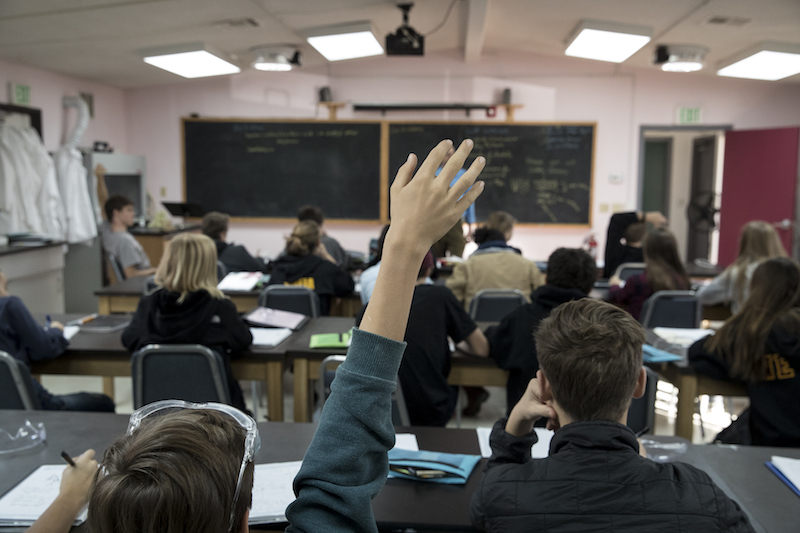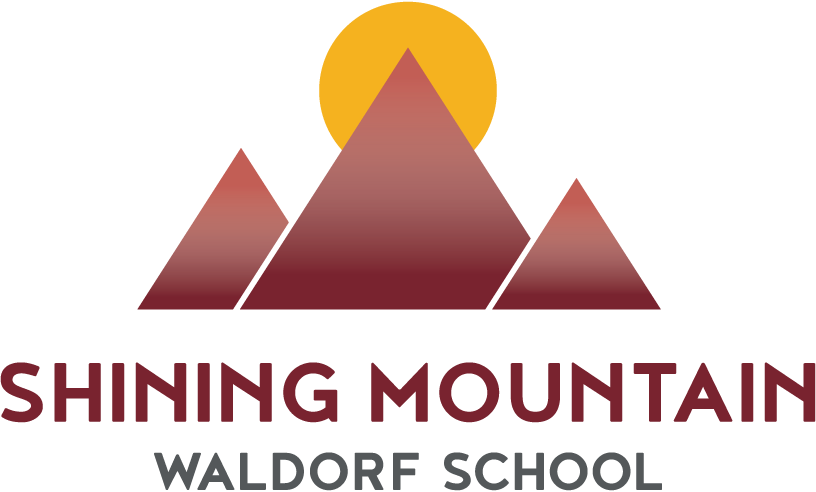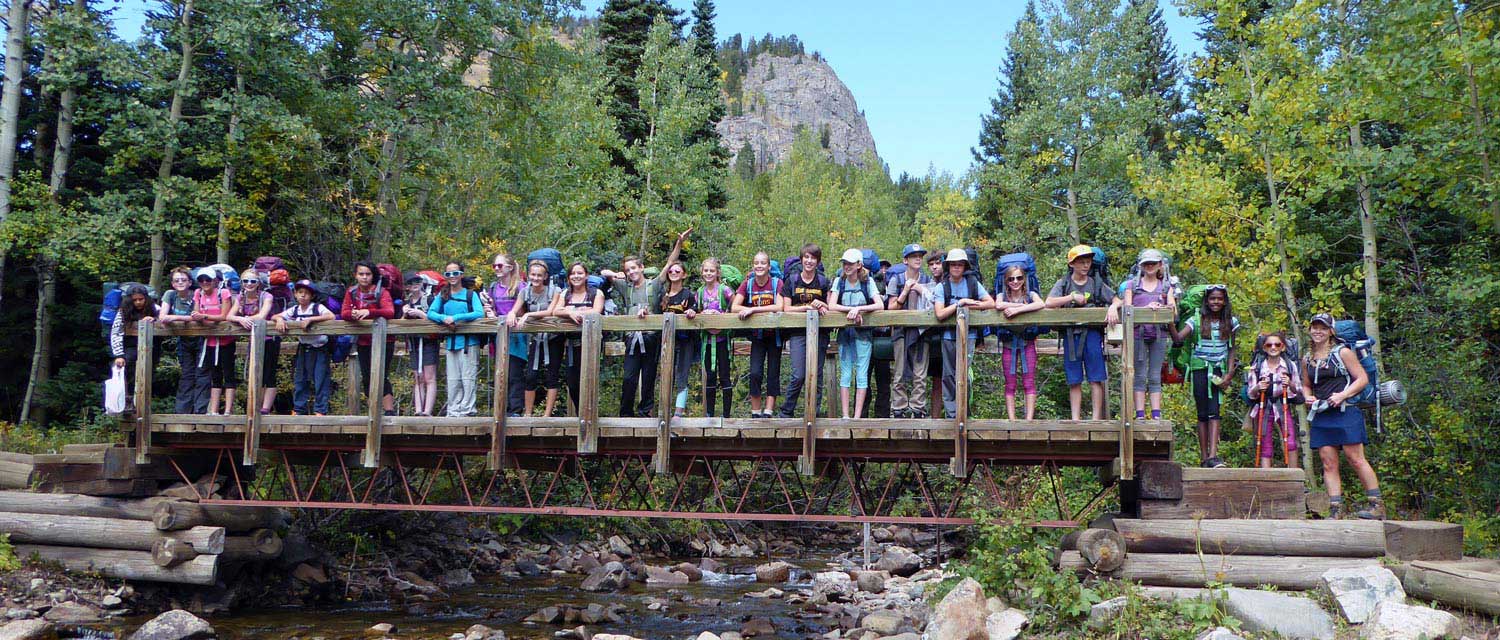What is the conversation at the national level and what is the conversation at Shining Mountain Waldorf School in Boulder, CO?
By Leigh Ann Hill, High School Administrator and co-chair of the SMWS Diversity and Inclusivity Committee
The Association of Waldorf Schools of North America (AWSNA) offered their annual summer conference, held this year at the Washington Waldorf School in Bethesda, MD, June 25-28, 2018, on the topic of looking at Waldorf education through the lens of social justice. Dorothea Altgelt, Mary Fairfield, Marilyn Fox, Joshua Wilson, Jane Zeender and I all had the good fortune of being able to attend the conference. Conference presenters were Dr. Linda Williams, a Waldorf teacher and administrator at the Detroit Waldorf School, and Neil Boland, a Waldorf educator and senior lecturer at Auckland University of Technology in New Zealand.
Neil Boland defines social justice as, “…all members of society are acknowledged as of equal merit, value and importance. It means that social, monetary and land resources and rights need to be shared equitably. In addition, no group or groups within society should be privileged to the detriment of others, be that based on gender, class, wealth, resource ownership, culture, belief or non-belief, ethnicity, sexual or gender orientation, epistemological viewpoint or other identifying characteristics.”
Over the course of the conference Linda and Neil:
- investigated aspects of place, race, gender and class within Waldorf education;
- incorporated the work of contemporary researchers and philosophers to support this investigation;
- investigated instances of implicit, unintentional bias within society in general and, through this, Waldorf education;
- talked briefly about why they believe this question is important for this time;
- and lastly, identified ways in which individuals, schools and communities might work with some of the ideas raised to work towards social justice goals.
Rounding out the keynotes by Linda and Neil were vignettes brought by Tara Wyman, high school teacher at Academe of the Oaks in Atlanta, GA; Cecelia Twanmo, Washington Waldorf School alum and current student at Bard College; Avi Bowie, Chicago Waldorf School alum and social worker, therapist and trainer; and Katea Stitt, radio host, parent at Washington Waldorf School and founding member of the school’s Diversity Committee. Each of these individuals spoke from their own perspective about different aspects of our schools: the need to deepen and strengthen our community service work; the need to make our schools more welcoming and inclusive to all of our students and families; and the need to educate ourselves and our communities regarding what it means to live in a diverse community. These needs are all connected to race, identity, sexual and gender orientation, socioeconomic status, ability and much more.
The intention of the conference was not to sit and listen to the “experts”; rather it was the beginning of a conversation inviting us to look at what we are doing in our classrooms and communities in relationship to social justice. What are the questions we need to be asking in order to deepen our own understanding of oppression, bias, prejudice, equity, diversity and inclusion?

Rudolf Steiner gave us an incredible foundation through the curriculum to begin our conversations. The challenge for all of us working in Waldorf education now is to ensure that we are being responsive to our present time and needs, as well as looking towards the future. We have the opportunity to transform how we have previously taught the Age of Exploration by deepening our own understanding of the impact of colonization, conquest and invasion around the world and in our own backyards. We have the opportunity to ensure that LGBTQ and gender expansive folks can see themselves reflected in the stories we tell, the literature we read, and in the community of families who surround and support them. We have the opportunity to ensure that our festivals are representative of the families who have chosen to attend our school, as well as those who are seeking us out. We have the opportunity to help our students explore a world filled with scientists, mathematicians, writers, dancers, musicians, artists, philosophers, historians and activists who represent us all: all genders and identities, all religions and spiritual practices, all sexual orientations, all races and ethnicities, all abilities, all ages, all statuses.
For many of us, delving into the work of social justice can be transformative. Here at Shining Mountain Waldorf School a group of us who are interested and committed to exploring our personal relationships to social justice and bringing that wisdom and experience to the school have formed the Diversity and Inclusivity Committee. Our committee has been meeting monthly since January 2017 and we represent the parent body, Board of Trustees, faculty, and administration. This committee has been looking at how our school can become more equitable, diverse and inclusive within the community of Boulder. We engage in ongoing study, attend trainings and workshops, review school policies, and support our faculty as they review our curriculum and festivals. We are also available to support anyone in the community who may be experiencing a lack of representation, bias, prejudice or oppression.
This past year the committee focused our efforts on providing training for the faculty, staff, Board and high school students which focused on examining our personal values, bias and privilege. We partnered with the Spring Institute for these trainings which were well attended and well received. This work inspired lots of meaningful and sometimes difficult conversations and has many of us taking a deeper look at ourselves and our belief systems. The other major area of focus for the committee was developing the Equity, Inclusivity and Diversity Aspiration Statement for the school. This living document serves as a guidepost for the committee and the school as we imagine the future. We invite you to read this statement and consider what this means to you and your family. And if the idea of making Shining Mountain a more equitable, diverse and inclusive community excites and inspires you, please consider joining our committee. You are welcome to reach out to our co-chairs, Kristin Foreman, representing the Board and parent body, kristinf@smwaldorf.org, and Leigh Hill, High School Administrator, leighh@smwaldorf.org.

